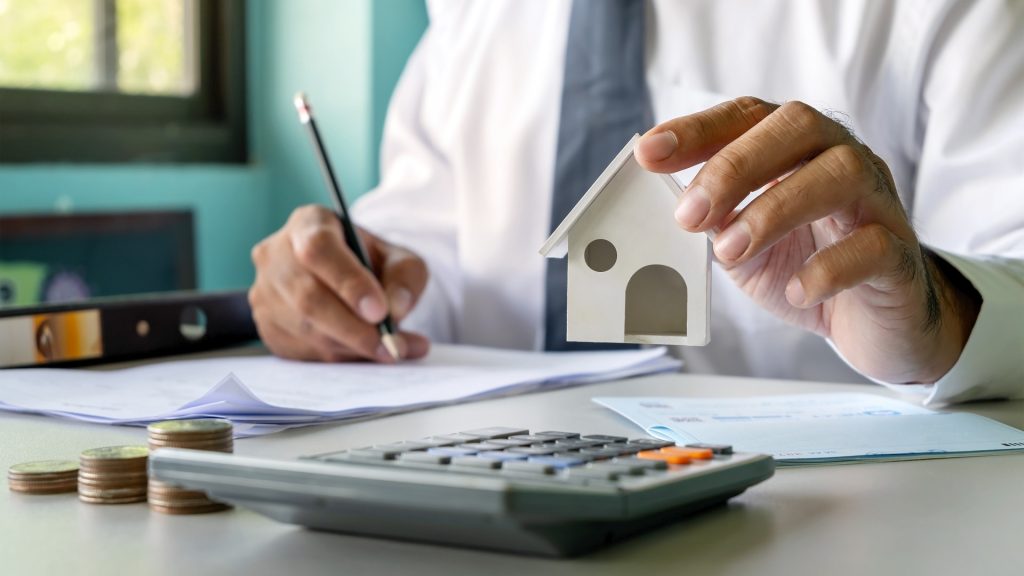Your home mortgage loan isn’t just a loan.
In fact, you can use your mortgage to build wealth, consolidate debt or save money. Home loans have become a staple in America, as most home purchases are financed through lenders, with most of purchase prices financed with mortgages.
But, instead of seeing your home mortgage as just another debt balance, you can take advantage of loan programs and options that can give you more financial flexibility in your life.
Here are seven moves for homeowners to make the most of their mortgage loans.
Use Home Equity To Remodel
The last few years have seen unprecedented growth in housing prices, and the boost in home equity might give you the ability to tap your equity for some home improvements. Whether you use a Home Equity Line of Credit (HELOC) or a cash-out refinance, accessing your home equity for home improvements can be a great way to increase the value of your home.
Take Our Poll: Are You Planning To Buy or Sell a House This Year?
Another advantage of using a home equity loan for home improvement is that you can deduct the interest paid on your tax return. The IRS states that “interest on home equity loans and lines of credit are deductible only if the borrowed funds are used to buy, build or substantially improve the taxpayer’s home that secures the loan. The loan must be secured by the taxpayer’s main home or second home (qualified residence), and meet other requirements.”
So, whether you get a loan against your main home or a second home, the home equity might be tax deductible. As always, it’s best to consult with a licensed tax professional to determine your eligibility for this.
Buy Down Your Rate
Interest rates are the highest they’ve been in decades, causing mortgages to become much more expensive. If you are in the market to buy a home and want to lower your mortgage, you might have the option of buying it down to a lower rate.
Buying down your rate allows you to put down upfront money to lower the interest rate on your mortgage. It usually costs 1% of the total mortgage balance to lower your interest rate by 0.25%. While this might seem like a minimal change, it can be thousands of dollars over the life of the loan.
Buying down your loan can save you money, but you need to run the numbers first. If you don’t plan on keeping your loan for very long, it can actually cost you money. It’s best for buyers who plan to keep their mortgages for five years (or more). There are several ways to buy down your loan, so you will need to discuss the options with your lender.
Consolidate High-Interest Debt
If you have equity in your home but also have high-interest debt, you can consolidate that debt into your home loan through a refinance. Similar to a cash-out refinance, you borrow money against the equity in your home and use those funds to pay off debt, such as credit cards, auto loans and other high-interest loans.
This can be a great way to lower your monthly payments and save money on interest. It also can help increase your cash flow, as you no longer have high monthly payments for those separate debts.
But you should be aware that you are efficiently securing those debts to your home, and a failure to repay your increased mortgage loan could result in foreclosure or (potentially) losing your property altogether. You still are responsible for paying off that debt, you are simply moving it from one place to another (with a lower rate).
Refinance To Lower Your Rate
While interest rates are high right now, they might not be in the future. If you have built up your credit score since you bought your home, you still might be able to refinance to lower your interest rate. This can be a great way to lower your monthly payment and pay less interest over the life of the loan.
There are several ways to refinance your mortgage, with varying rates, term lengths and features. But if you can lower your rate and plan to stay in your home for a long time, it could save you tens of thousands of dollars over the life of the loan.
Just make sure to calculate your “break-even” point when refinancing. Most lenders charge a loan origination fee and other closing costs on the loan, so make sure you know when you will break even on the investment.
Refinance To Drop Mortgage Insurance
Mortgage insurance is an expensive requirement that lenders add on for borrowers who don’t put a large enough down payment. The traditional way to avoid mortgage insurance is to have a down payment of 20% of the home’s purchase price.
But, with home prices soaring to new highs over the last few years, many borrowers simply cannot afford to put down 20%. Lenders offer low down-payment options, with many loans offering 5% or 3.5% options. But these mortgages require mortgage insurance to protect lenders from loan defaults.
Mortgage insurance can be removed by paying down your loan until you have 78% loan to value (LTV), but you might also be able to refinance your loan to remove it as well. If your home value has risen substantially over the last few years, even if you put very little money down when buying, you might be over that 78% LTV threshold. It may require a formal appraisal to get the new value for your home, so make sure to work with a lender that understands refinancing to remove PMI.
Open a HELOC To Buy a Rental Home
A home equity line of credit (HELOC) is a credit line that is secured by your home, allowing you to borrow money against the available equity in your home. These loans typically carry a variable interest rate and are more akin to a credit card than a typical loan.
One strategy to tap your home equity to build wealth is using a HELOC to pull out funds for the down payment on a rental home. While first-time homebuyers can buy their principal residence for as little as 3.5% down, rental homes typically need 10% or more. A HELOC can help you access quick cash at interest rates that are typically lower than a personal loan.
The risk is, of course, that the rental home doesn’t pan out and you end up losing money on the investment. It’s important to run the numbers on your investment to ensure you have the ability to cover the HELOC payments.
Make Extra Mortgage Payments
If you recently bought a home or have refinanced to a new loan, you might be (painfully) aware that interest rates are very high right now. This has made housing much more expensive for buyers, but it also will end up costing homeowners with high rates tens of thousands of dollars more over the life of their loans.
While paying down low-interest debt is typically done after you invest, if your mortgage rate is 6% (or higher), it might be advantageous to pay it down faster. The reason is that paying off a high-interest mortgage gives you a guaranteed rate of return at your mortgage interest rate.
For example: If you have a 3% mortgage, it might be better to invest your extra money instead, as the stock market typically returns 6% to 9% over the long term. But those returns are not guaranteed. If you have a 7% mortgage rate, paying it down gives you a guaranteed 7% return.
Bottom Line
Home mortgages can be huge burdens, as they are typically attached to the biggest investment of your life. But if you know how to use them properly, they can be powerful wealth-building tools. Just make sure to do your research before leveraging your home equity or home mortgage to make other investments.
More From GOBankingRates
Read the full article here







